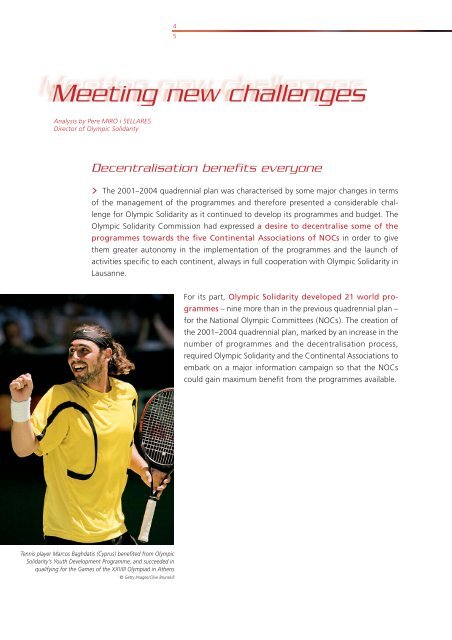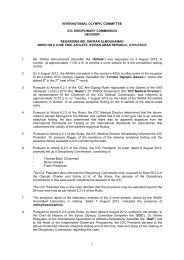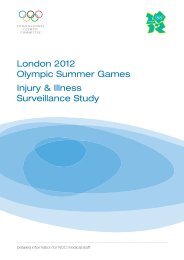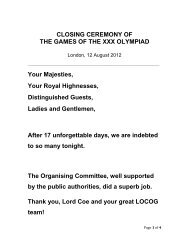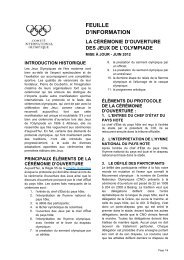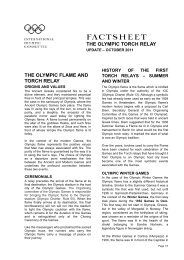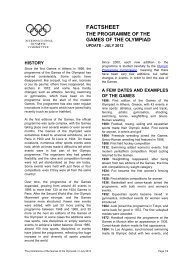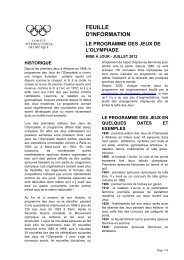Final Report
Final Report
Final Report
You also want an ePaper? Increase the reach of your titles
YUMPU automatically turns print PDFs into web optimized ePapers that Google loves.
Analysis by Pere MIRÓ i SELLARES<br />
Director of Olympic Solidarity<br />
4<br />
5<br />
Decentralisation benefits everyone<br />
The 2001–2004 quadrennial plan was characterised by some major changes in terms<br />
of the management of the programmes and therefore presented a considerable challenge<br />
for Olympic Solidarity as it continued to develop its programmes and budget. The<br />
Olympic Solidarity Commission had expressed a desire to decentralise some of the<br />
programmes towards the five Continental Associations of NOCs in order to give<br />
them greater autonomy in the implementation of the programmes and the launch of<br />
activities specific to each continent, always in full cooperation with Olympic Solidarity in<br />
Lausanne.<br />
Tennis player Marcos Baghdatis (Cyprus) benefited from Olympic<br />
Solidarity’s Youth Development Programme, and succeeded in<br />
qualifying for the Games of the XXVIII Olympiad in Athens<br />
© Getty Images/Clive Brunskill<br />
For its part, Olympic Solidarity developed 21 world programmes<br />
– nine more than in the previous quadrennial plan –<br />
for the National Olympic Committees (NOCs). The creation of<br />
the 2001–2004 quadrennial plan, marked by an increase in the<br />
number of programmes and the decentralisation process,<br />
required Olympic Solidarity and the Continental Associations to<br />
embark on a major information campaign so that the NOCs<br />
could gain maximum benefit from the programmes available.


